Radiolab

Radiolab is on a curiosity bender. We ask deep questions and use investigative journalism to get the answers. A given episode might whirl you through science, legal history, and into the home of someone halfway across the world. The show is known for innovative sound design, smashing information into music. It is hosted by Lulu Miller and Latif Nasser.
Website : https://www.wnycstudios.org/podcasts/radiolab/projects/podcasts
IPFS Feed : https://ipfspodcasting.net/RSS/260/Radiolab.xml
Last Episode : September 12, 2025 2:00pm
Last Scanned : 1.1 hours ago


Episodes
Episodes currently hosted on IPFS.
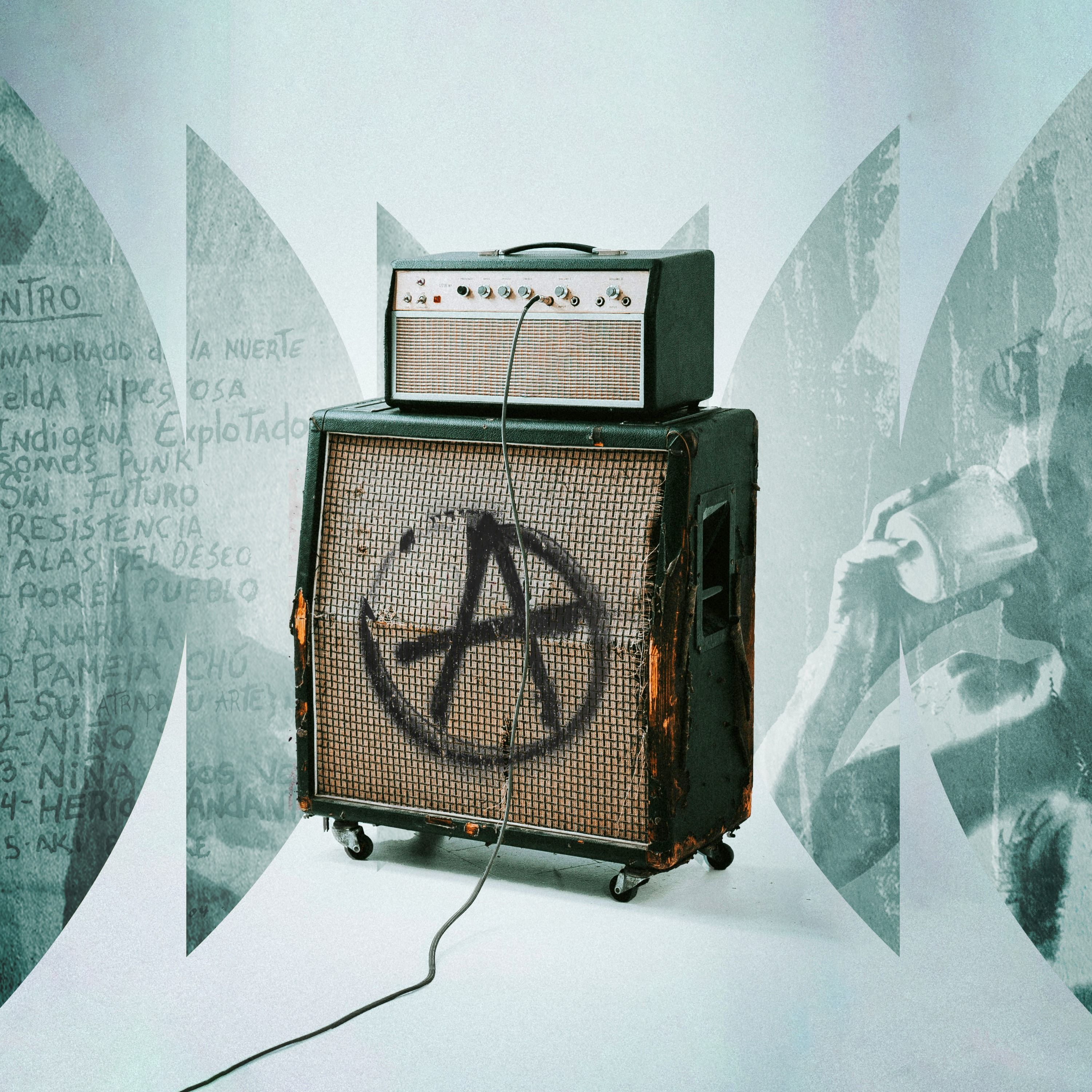 Los Frikis
Los FrikisHow a group of 80’s Cuban misfits found rock-and-roll and created a revolution within a revolution, going into exile without ever leaving home. Reporter Luis Trelles brings us the story of punk rock’s arrival in Cuba and a small band of outsiders who sentenced themselves to death and set themselves free. We originally released this episode back in 2015 in a collaboration with Radio Ambulante, but the story is so fascinating (and, in many ways, still relevant) that we haven’t stopped thinking about it. Special thanks to the bands VIH, Eskoria, Metamorfosis and Alio Die & Mariolina Zitta for the use of their music. Radio Ambulante launches their 15th season on September 30th!!Check it out, here!! (https://radioambulante.org/en) EPISODE CITATIONS:Find some of Radio Ambulante’s other stories about the Frikis here -The Survivors (https://zpr.io/Kh8KWWi6SqaF)When Havana was Friki (https://zpr.io/HrXsgibzvbJj)Please put any supporting materials you think our audience would find interesting or useful below in the appropriate broad categories.Signup for our newsletter!! It includes short essays, recommendations, and details about other ways to interact with the show. Sign up (https://radiolab.org/newsletter)!Radiolab is supported by listeners like you. Support Radiolab by becoming a member of The Lab (https://members.radiolab.org/) today.Follow our show on Instagram, Twitter and Facebook @radiolab, and share your thoughts with us by emailing [email protected] support for Radiolab’s science programming is provided by the Simons Foundation and the John Templeton Foundation. Foundational support for Radiolab was provided by the Alfred P. Sloan Foundation.
Published Friday
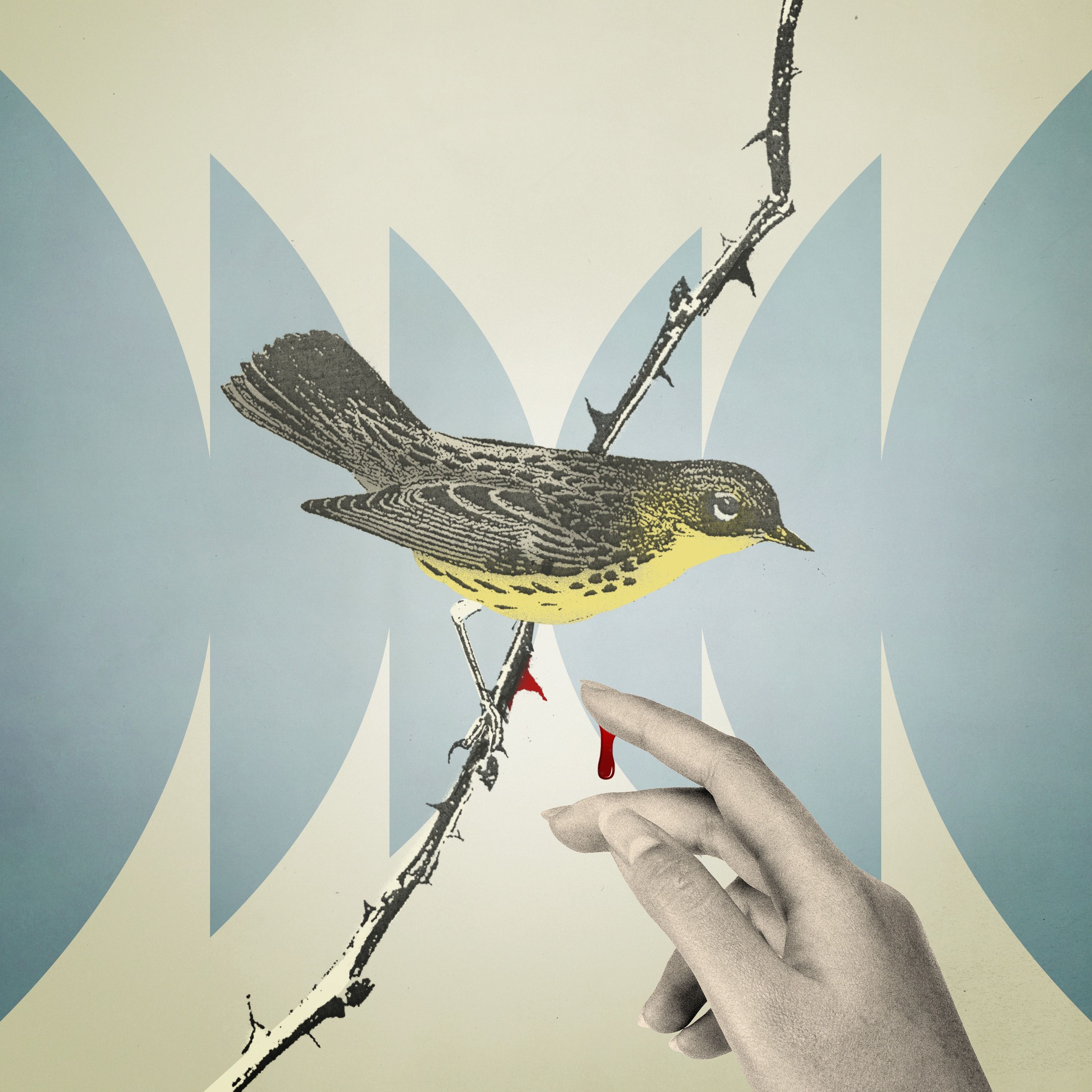 Weighing Good Intentions
Weighing Good IntentionsIn an episode first released in 2010, then-producer Lulu Miller drives to Michigan to track down the endangered Kirtland’s warbler. Efforts to protect the bird have lead to the killing of cowbirds (a species that commandeers warbler nests), and a prescribed burn aimed at creating a new habitat. Tragically, this burn led to the death of a 29-year-old wildlife technician who was dedicated to warbler restoration. Forest Service employee Rita Halbeisen, local Michiganders skeptical of the resources put toward protecting the warbler, and the family of James Swiderski (the man killed in the fire), weigh in on how far we should go to protect one species.EPISODE CREDITS:Reported by - Lulu MillerSignup for our newsletter!! It includes short essays, recommendations, and details about other ways to interact with the show. Sign up (https://radiolab.org/newsletter)!Radiolab is supported by listeners like you. Support Radiolab by becoming a member of The Lab (https://members.radiolab.org/) today.Follow our show on Instagram, Twitter and Facebook @radiolab, and share your thoughts with us by emailing [email protected] support for Radiolab’s science programming is provided by the Simons Foundation and the John Templeton Foundation. Foundational support for Radiolab was provided by the Alfred P. Sloan Foundation.
Published 08/15
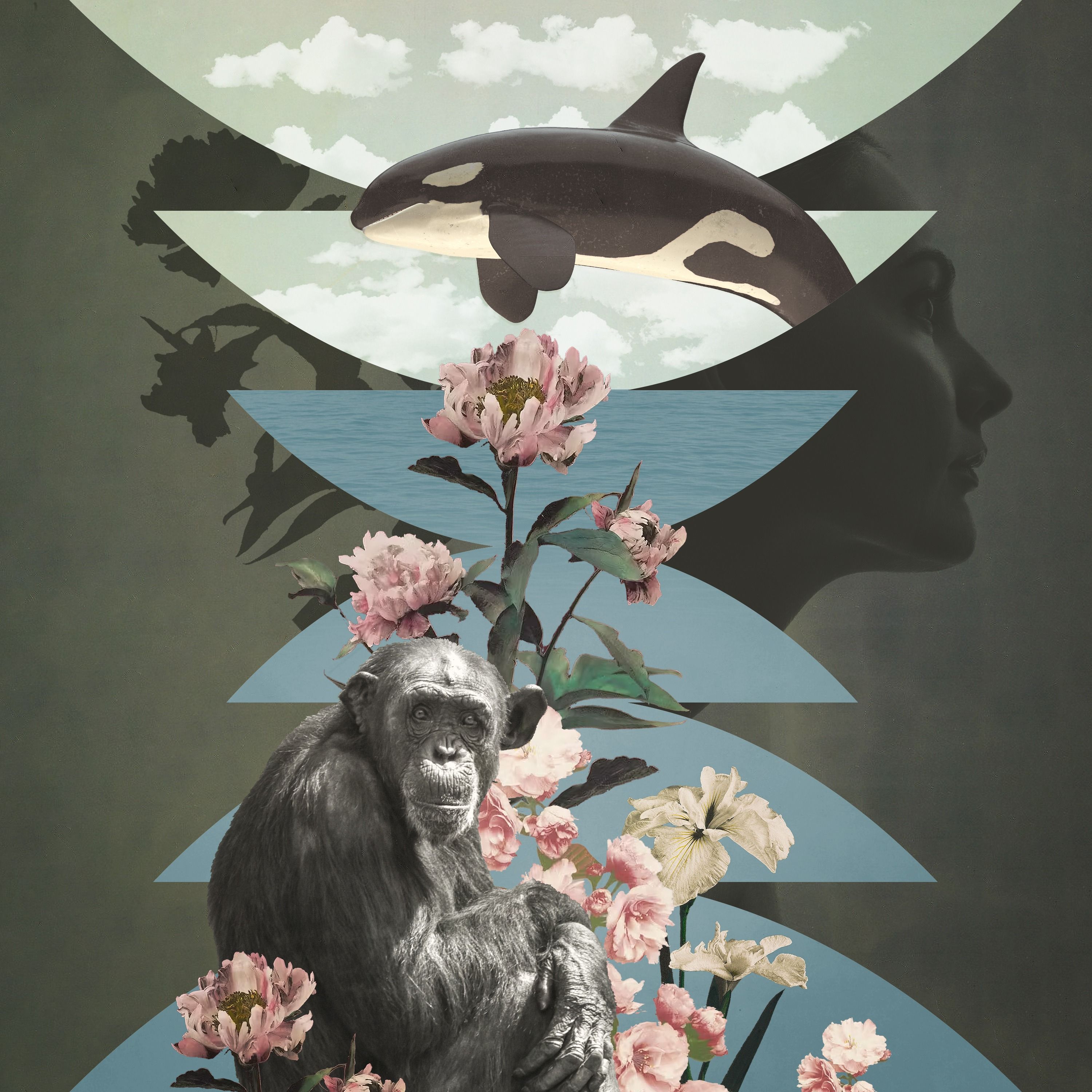 The Menopause Mystery
The Menopause MysteryUntil recently, scientists assumed humans were the only species in which females went through menopause, and lived a substantial part of their lives after they were no longer able to reproduce. And they had no idea why that happens, and why evolution wouldn’t push females to keep reproducing right up to the end of their lives. But after a close look at some whale poop, and a deep dive into chimp life, we find several new ways of thinking about menopause and the real purpose of this all too often overlooked second act of life. Special thanks to Danielle Friedman, Rachel Gross, and Kate Radke.EPISODE CREDITS: Reported by - Heather Radke and Becca BresslerProduced by - Sarah Qari and Becca BresslerFact-checking by - Emily Kriegerand Edited by - Becca BresslerEPISODE CITATIONS:Books - Check out everything Heather Radke writes, including Butts: A Backstory, cause it’s all that good, here: Heather Radke (www.heatherradke.com).Find any one of Lucy Cooke’s book, including Bitch:On the Female of the Species, here: Lucy Cooke (http://www.lucycooke.tv/)And check out everything Caroline Paul has on offer, including Tough Broad, here: Caroline Paul (https://www.carolinepaul.com/) Socials - Heather Radke: https://www.instagram.com/radhradkeLucy Cooke: https://www.instagram.com/luckycooke/Audio:Becca Bressler’s greatest hits- Bloc PartyOur Stupid Little BodiesGigaverseRadiolab | Lateral cuts - Butt StuffSignup for our newsletter!! It includes short essays, recommendations, and details about other ways to interact with the show. Sign up (https://radiolab.org/newsletter)!Radiolab is supported by listeners like you. Support Radiolab by becoming a member of The Lab (https://members.radiolab.org/) today.Follow our show on Instagram, Twitter and Facebook @radiolab, and share your thoughts with us by emailing [email protected] support for Radiolab’s science programming is provided by the Simons Foundation and the John Templeton Foundation. Foundational support for Radiolab was provided by the Alfred P. Sloan Foundation.
Published 08/08
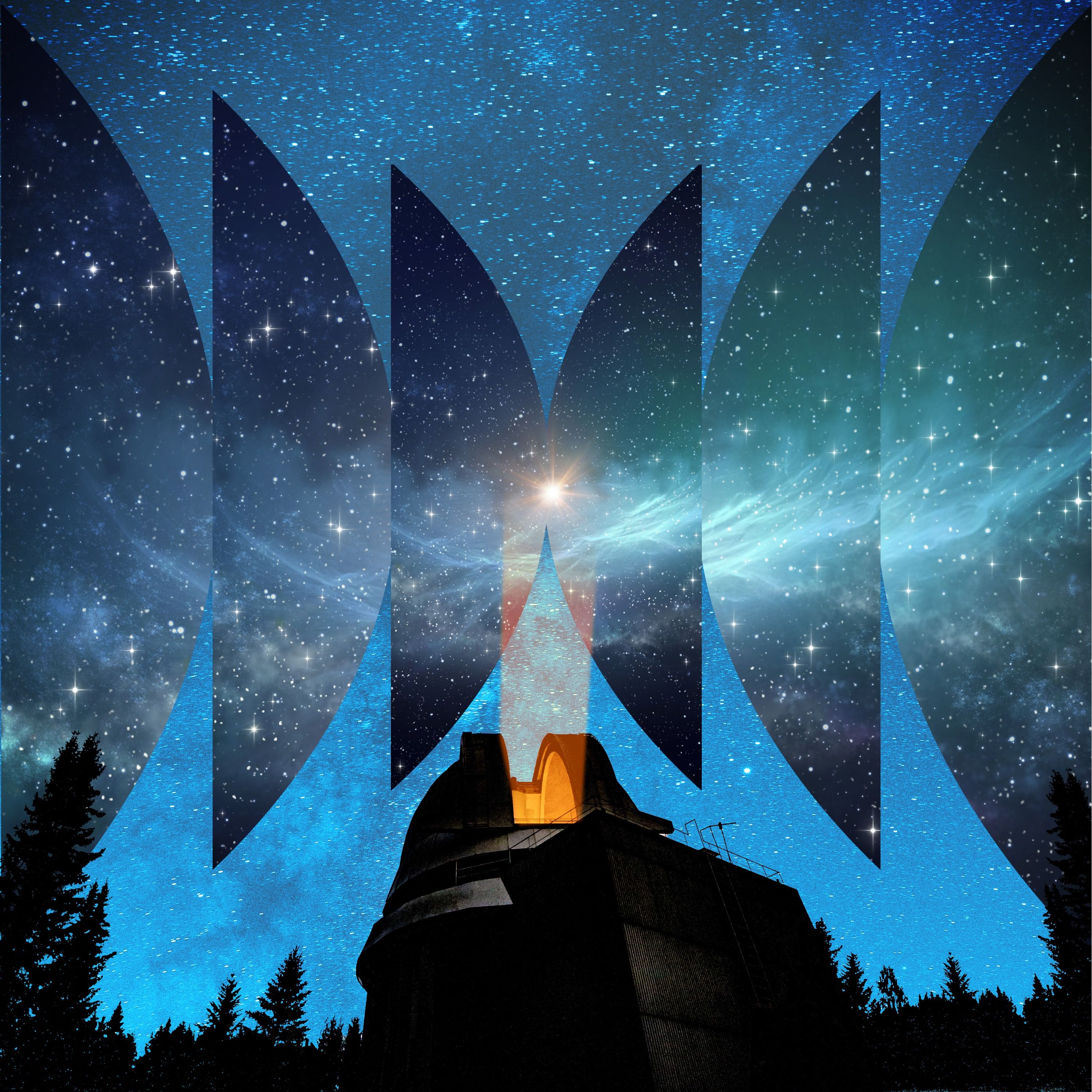 Galaxy Quenching
Galaxy QuenchingThis week: the story of astrophysicist Charity Woodrum. Charity is an extragalactic astronomer who studies the life and death of galaxies, why some galaxies burn bright and others dim and sputter out. And in the midst of an unthinkable grief in her personal life, she discovers something in the sky – a new kind of light that would guide her path forward. Special thanks to Megan Stielstra, Jad Abumrad, Michael Woodrum, Gina Vivona, and Clair Reilly-Roe.EPISODE CREDITS: Reported by - Lulu MillerProduced by - Jessica YungFact-checking by - Diane KellyRadiolab | Lateral Cuts:Our episode The Darkest Dark (https://radiolab.org/podcast/the-darkest-dark) could be of interest to those seeking the deepest unknowns. EPISODE CITATIONS:Music -Clair Reilly-Roe’s song “Sky Full of Ghosts” (https://zpr.io/JgauhRnj7qpX)Articles -A new documentary on Charity Woodrum’s story: Space, Hope and Charity (https://www.spacehopecharityfilm.com/)Signup for our newsletter!! It includes short essays, recommendations, and details about other ways to interact with the show. Sign up (https://radiolab.org/newsletter)!Radiolab is supported by listeners like you. Support Radiolab by becoming a member of The Lab (https://members.radiolab.org/) today.Follow our show on Instagram, Twitter and Facebook @radiolab, and share your thoughts with us by emailing [email protected] support for Radiolab’s science programming is provided by the Simons Foundation and the John Templeton Foundation. Foundational support for Radiolab was provided by the Alfred P. Sloan Foundation.
Published 08/01
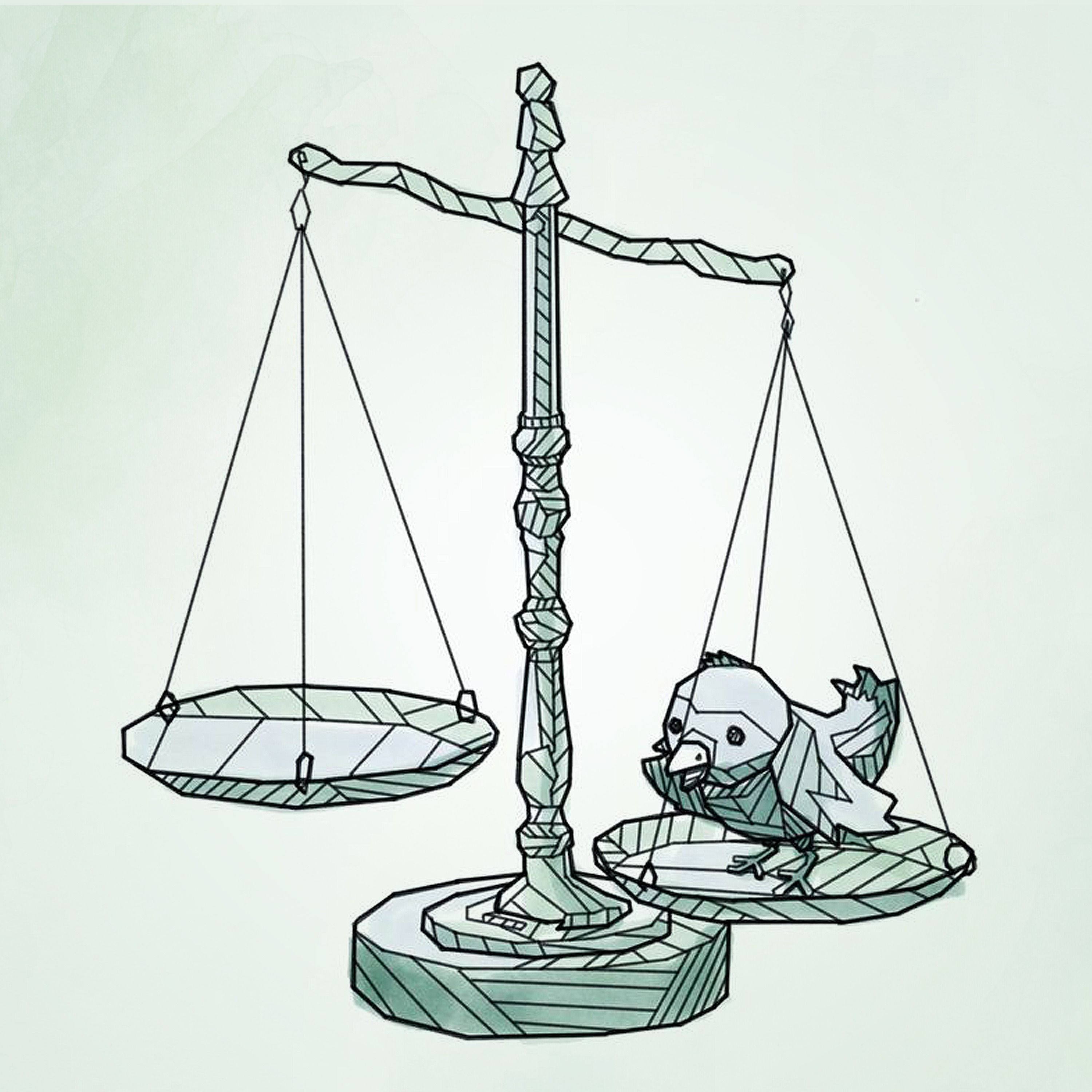 More Perfect: The Hate Debate
More Perfect: The Hate DebateBack in 2017 our colleagues at More Perfect gathered a room full of people together to debate a straight forward question: Can free speech go too far? Today, eight years have passed and plenty has changed, but this question feels alive as ever. And so we’re re-airing More Perfect’s The Hate Debate. Taped live at WNYC's Jerome L. Greene Performance Space, Elie Mystal, Ken White and Corynne McSherry duke it out over whether the first amendment needs an update in our digital world. Special thanks to Elaine Chen, Jennifer Keeney Sendrow, and the entire Greene Space team. Additional engineering for this episode by Chase Culpon, Louis Mitchell, and Alex Overington.EPISODE CITATIONS:Videos -If watching is more your speed, you can see the event, in its entirety, here:https://www.youtube.com/live/azcIcVDyVTM?si=ZqpQHQfvTKr2jS0zThere’s other Radiolabs for that -Further recommended listening What Up Holmes and Post No Evil.Signup for our newsletter!! It includes short essays, recommendations, and details about other ways to interact with the show. Sign up (https://radiolab.org/newsletter)!Radiolab is supported by listeners like you. Support Radiolab by becoming a member of The Lab (https://members.radiolab.org/) today.Follow our show on Instagram, Twitter and Facebook @radiolab, and share your thoughts with us by emailing [email protected] support for Radiolab’s science programming is provided by the Simons Foundation and the John Templeton Foundation. Foundational support for Radiolab was provided by the Alfred P. Sloan Foundation.
Published 07/18
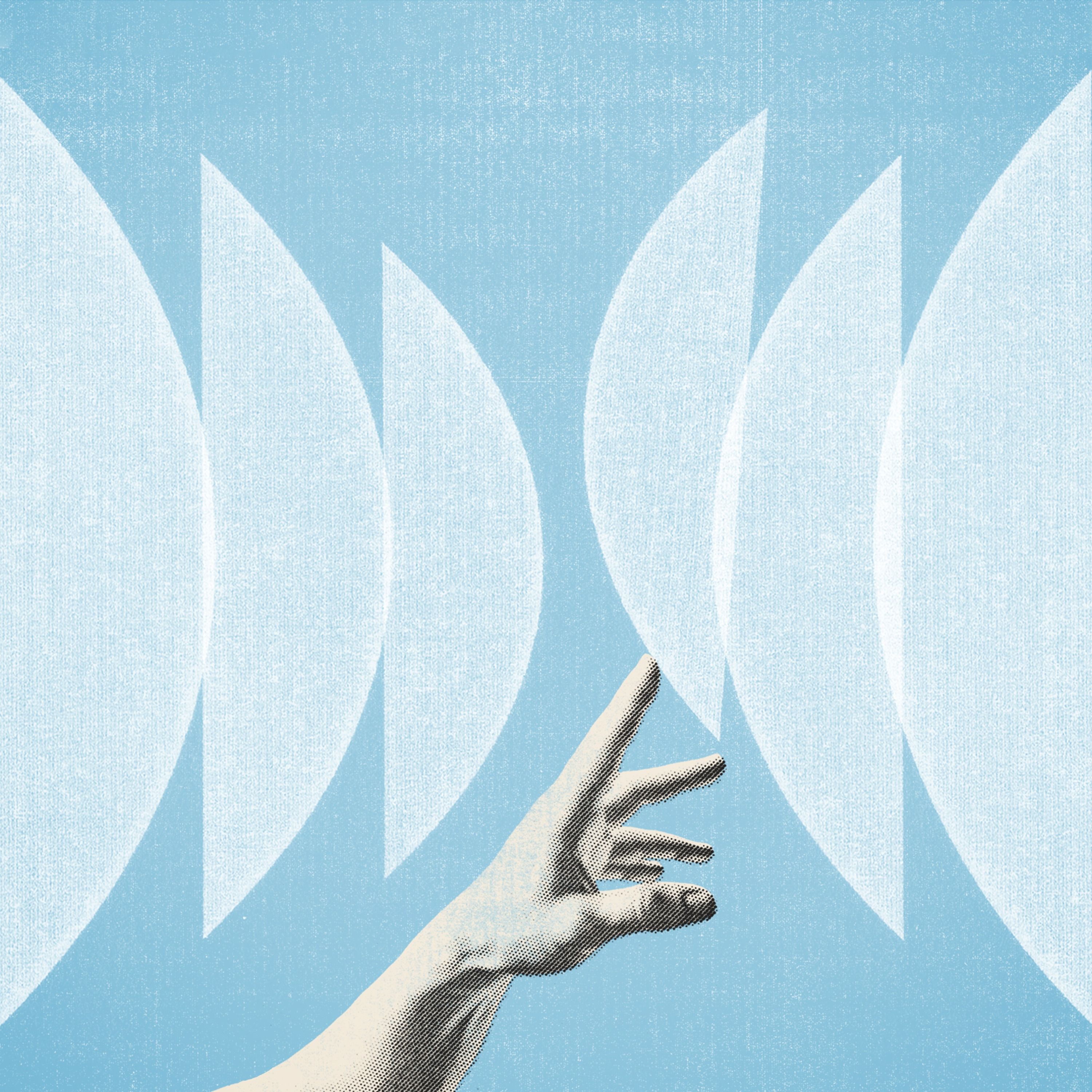 Desperately Seeking Symmetry
Desperately Seeking SymmetryThis hour of Radiolab, former co-hosts Jad and Robert set out in search of order and balance in the world around us, and ask how symmetry shapes our very existence -- from the origins of the universe, to what we see when we look in the mirror.Along the way, we look for love in ancient Greece, head to modern-day Princeton to peer inside our brains, and turn up an unlikely headline from the Oval Office circa 1979.EPISODE CITATIONS:Videos - Back in the day, when we first aired this episode, the film collective Everynone, filmmakers Will Hoffman, Daniel Mercadante and Julius Metoyer III were inspired with our yearning for balance, and aimed to visually reveal how beautiful imperfect matches can be.Radiolab Presents: Symmetry (https://youtu.be/zEQskIsHKT8)Signup for our newsletter!! It includes short essays, recommendations, and details about other ways to interact with the show. Sign up (https://radiolab.org/newsletter)!Radiolab is supported by listeners like you. Support Radiolab by becoming a member of The Lab (https://members.radiolab.org/) today.Follow our show on Instagram, Twitter/X and Facebook @radiolab, and share your thoughts with us by emailing [email protected] support for Radiolab’s science programming is provided by the Simons Foundation and the John Templeton Foundation. Foundational support for Radiolab was provided by the Alfred P. Sloan Foundation.
Published 07/11
 On [The Divided Dial]: Fishing In The Night
On [The Divided Dial]: Fishing In The NightHave you heard On the Media’s Peabody-winning series The Divided Dial? It’s awesome and you should, and now you will. In this episode they tell the story of shortwave radio: the way-less-listened to but way-farther-reaching cousin of AM and FM radio. The medium was once heralded as a utopian, international, and instantaneous mass communication tool — a sort of internet-before-the-internet. But, like the internet, many people quickly saw the power of this new technology and found ways to harness it. State leaders turned it into a propaganda machine, weaponizing the airwaves to try and shape politics around the world. And as shortwave continued to evolve, like the internet, it became fragmented, easily accessible, and right-wing extremists, conspiracy theorists and cult leaders found homes on the different shortwave frequencies. And even today - again, like the internet - people with money are looking to buy up this mass-communication tool in the hopes of … making more money. This is episode one from the second season of The Divided Dial a limited series from On The Media. Listen on Spotify (https://zpr.io/hKCcFEGTLb5a)Listen on Apple Podcasts (https://zpr.io/tQ86YmEmiivR)Listen on the WNYC App (iTunes, Android)Listen to the full Divided Dial series (https://www.onthemedia.org/dial)Follow On The Media on Instagram @onthemedia The Divided Dial was supported in part by a grant from the Fund for Investigative Journalism. On the Media is supported by listeners like you. Support OTM by donating today (https://pledge.wnyc.org/support/otm). Follow our show on Instagram, Twitter and Facebook @onthemedia, and share your thoughts with us by emailing [email protected] for our newsletter!! It includes short essays, recommendations, and details about other ways to interact with the show. Sign up (https://radiolab.org/newsletter)!Radiolab is supported by listeners like you. Support Radiolab by becoming a member of The Lab (https://members.radiolab.org/) today.Follow our show on Instagram, Twitter and Facebook @radiolab, and share your thoughts with us by emailing [email protected] support for Radiolab’s science programming is provided by the Simons Foundation and the John Templeton Foundation. Foundational support for Radiolab was provided by the Alfred P. Sloan Foundation.
Published 07/04
 Sex, Ducks and the Founding Feud
Sex, Ducks and the Founding FeudJilted lovers and disrupted duck hunts provide a very odd look into the soul of the US Constitution.What does a betrayed lover’s revenge have to do with an international chemical weapons treaty? More than you’d think. From poison and duck hunts to our feuding fathers, we step into a very odd tug of war between local and federal law.When Carol Anne Bond found out her husband had impregnated her best friend, she took revenge. Carol's particular flavor of revenge led to a US Supreme Court case that puts into question a part of the US treaty power. Producer Kelsey Padgett drags Jad and Robert into Carol's poisonous web, which starts them on a journey from the birth of the US Constitution, to a duck hunt in 1918, and back to the present day. It’s all about an ongoing argument that might actually be the very heart and soul of our system of government.Signup for our newsletter!! It includes short essays, recommendations, and details about other ways to interact with the show. Sign up (https://radiolab.org/newsletter)!Radiolab is supported by listeners like you. Support Radiolab by becoming a member of The Lab (https://members.radiolab.org/) today.Follow our show on Instagram, Twitter and Facebook @radiolab, and share your thoughts with us by emailing [email protected] support for Radiolab’s science programming is provided by the Simons Foundation and the John Templeton Foundation. Foundational support for Radiolab was provided by the Alfred P. Sloan Foundation.
Published 06/27
 Baby Shark
Baby SharkThis is episode five of Swimming with Shadows: A Radiolab Week of Sharks.Today, the strange, squirmy magic behind how sharks make more sharks. Drills. Drama. Death. Even a coliseum of baby sharks duking it out inside mom’s womb. And a man on a small island in the Mediterranean trying, against all odds, to give baby sharks a chance in a little plastic aquarium in his living room. Can a human raise a shark? And if so, what good is that for sharks? And for us? Doo doo doo doo doo doo.Special thanks to Jaime Penadés Suay and la Fundación Azul Marino.EPISODE CREDITS: Reported by - Rachael CusickProduced by - Rachael Cusickwith mixing help from - Jeremy BloomFact-checking by - Diane Kellyand Edited by - Pat WaltersEPISODE CITATIONS:Articles - Claudia’s original reporting that inspired the episodeSignup for our newsletter!! It includes short essays, recommendations, and details about other ways to interact with the show. Sign up (https://radiolab.org/newsletter)!Radiolab is supported by listeners like you. Support Radiolab by becoming a member of The Lab (https://members.radiolab.org/) today.Follow our show on Instagram, Twitter and Facebook @radiolab, and share your thoughts with us by emailing [email protected] support for Radiolab’s science programming is provided by the Gordon and Betty Moore Foundation, Science Sandbox, a Simons Foundation Initiative, and the John Templeton Foundation. Foundational support for Radiolab was provided by the Alfred P. Sloan Foundation.
Published 06/20
 Mystery Bay
Mystery BayThis is episode four of Swimming with Shadows: A Radiolab Week of Sharks.Alison Kock was working at a car wash in Cape Town when she made a discovery that completely changed the course of her life. Inside a customer’s trunk, she found photographs of white sharks flying so high above the water they looked like airplanes. She followed those photographs to False Bay, “the Great White Capital of the World.” These sharks, in this place, are the apex of apex predators. Or they were. Until they mysteriously began to disappear.Special thanks to Kathryn Ayres.EPISODE CREDITS: Reported by - Rachael Cusick Produced by - Simon Adler and Maria Paz Gutierrezwith help from - Rebecca Laks Original music from - Simon Adler and Maria Paz GutierrezSound design contributed by - Jeremy Bloomwith mixing help from - Jeremy BloomFact-checking by - Diane A. Kellyand Edited by - Pat WaltersSignup for our newsletter!! It includes short essays, recommendations, and details about other ways to interact with the show. Sign up (https://radiolab.org/newsletter)!Radiolab is supported by listeners like you. Support Radiolab by becoming a member of The Lab (https://members.radiolab.org/) today.Follow our show on Instagram, Twitter and Facebook @radiolab, and share your thoughts with us by emailing [email protected] support for Radiolab’s science programming is provided by the Gordon and Betty Moore Foundation, Science Sandbox, a Simons Foundation Initiative, and the John Templeton Foundation. Foundational support for Radiolab was provided by the Alfred P. Sloan Foundation.
Published 06/19
 The Shark Inside You
The Shark Inside YouThis is episode three of Swimming with Shadows: A Radiolab Week of Sharks.Today, we take a trip across the world, from the south coast of Australia to … Wisconsin. Here, scientists are scouring shark blood to find one of nature’s hidden keys, a molecular superhero that might unlock our ability to cure cancer: shark antibodies. They’re small. They’re flexible. And they can fit into nooks and crannies on tumors that our antibodies can’t.We journey back 500 million years to the moment sharks got these special powers and head to the underground labs transforming these monsters into healers. Can these animals we fear so much actually save us? Special thanks to Mike Criscitiello, David Schatz, Mary Rose Madden, Ryan Ogilvie, Margot Wohl, Sofi LaLonde, and Isabelle Bérubé.EPISODE CREDITS: Reported by - Becca BresslerProduced by - Becca Bressler and Matt KieltyOriginal music from - Matt Kielty and Jeremy BloomSound design contributed by - Matt Kielty, Jeremy Bloom, and Becca Bresslerwith mixing help from - Jeremy BloomFact-checking by - Diane Kellyand Edited by - Pat WaltersSignup for our newsletter!! It includes short essays, recommendations, and details about other ways to interact with the show. Sign up (https://radiolab.org/newsletter)!Radiolab is supported by listeners like you. Support Radiolab by becoming a member of The Lab (https://members.radiolab.org/) today.Follow our show on Instagram, Twitter and Facebook @radiolab, and share your thoughts with us by emailing [email protected] support for Radiolab’s science programming is provided by the Gordon and Betty Moore Foundation, Science Sandbox, a Simons Foundation Initiative, and the John Templeton Foundation. Foundational support for Radiolab was provided by the Alfred P. Sloan Foundation.
Published 06/18
 Making a Monster
Making a MonsterEpisode one of Swimming with Shadows: A Radiolab Week of Sharks.Rodney Fox went into the ocean one summer day in 1963. He came out barely alive, his body torn apart by a great white shark. At the time, it was one of the worst shark attacks ever survived.After he recovered, he was pulled back into the shadowy world he feared most. Again and again and again. That shark attack left behind a question that still lingers, for Rodney, and for all of us: When you can’t see the thing that scares you, what kind of monster does your mind create? And how do you fight past it?Special thanks to Surekha Davies, Asa Mittman, Scott Poole, and Maria Tatar.EPISODE CREDITS:Reported by - Rachael Cusickwith help from - Pat WaltersProduced by - Rachael Cusick and Pat WaltersSound design contributed by - Jeremy Bloomwith mixing help from - Jeremy BloomFact-checking by - Diane Kellyand Edited by - Pat WaltersSignup for our newsletter!! It includes short essays, recommendations, and details about other ways to interact with the show. Sign up (https://radiolab.org/newsletter)!Radiolab is supported by listeners like you. Support Radiolab by becoming a member of The Lab (https://members.radiolab.org/) today.Follow our show on Instagram, Twitter and Facebook @radiolab, and share your thoughts with us by emailing [email protected] support for Radiolab’s science programming is provided by the Gordon and Betty Moore Foundation, Science Sandbox, a Simons Foundation Initiative, and the John Templeton Foundation. Foundational support for Radiolab was provided by the Alfred P. Sloan Foundation.
Published 06/16